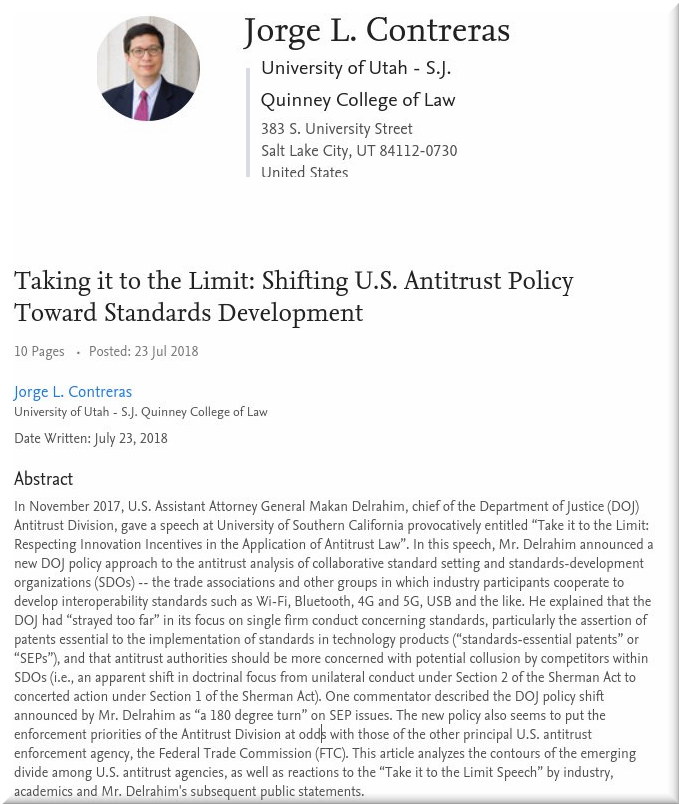

THE USPTO has long granted low-quality patents -- a bad legacy which needs tackling. The SCOTUS, the Federal Circuit and Patent Trial and Appeal Board (PTAB) inter partes reviews (IPRs) gradually tackle this legacy. But that's not enough.
"The USPTO has long granted low-quality patents -- a bad legacy which needs tackling."Donald Trump has put a lobbyist, Delrahim, in charge of antitrust. A lot of people don't agree with his policies or at least with the speeches he has given. Mark Patterson (Fordham, a pusher of patent maximlism, typically funded by Microsoft) said earlier this week that:
To put my cards on the table, I am largely in agreement with AAG Delrahim’s critics, though I did not sign either of their letters. I agree with Delrahim that it is reasonable to devote scrutiny to the patent “hold-out” problem that is his focus, but doing so does not require dismissing a well-established consensus on the validity and harm of patent “hold-up.” The most compelling evidence for hold-up, it seems to me, is the 100-to-1 ratio of royalty demands to royalty awards that have been seen in some cases. Perhaps that differential is the product of confused courts, but despite the calls of AAG Delrahim and his supporters for evidence or more evidence for hold-up, they themselves provide nothing to show that the courts are confused. Nor do they provide empirical evidence to demonstrate the claimed greater importance of hold-out.
[...]
I make no claim to the objective correctness of my annotations, which are only my immediate responses to various points made in the documents. But I have pointed out what I think are weak points in the responses by critics of Delrahim (despite my general agreement with those critics) as well as in his speeches. Also, some of my points in some documents are raised also in others, but I have tried to avoid duplication. Finally, the annotation approach might seem more argumentative than necessary, but I think it is warranted by the importance of the issues, the dramatic differences in the views expressed, and the unfamiliarity of some with these issues. This controversy deserves even more attention than it has already received.
"We're repeatedly cited people who called that a "scam" and have received legal threats for it."What we've seen so far, especially from the scholarly community (not people who make money from lawsuits), isn't positive. They see Makan Delrahim, a former lobbyist, for what he truly is. Contrast that with lawyers-dominated coverage which promotes patent maximalism (example from yesterday) and lawyers' sites which still insist that Mohawk folks should be "above the law", including patent law, in order to protect a massive corporation like Allergan. They repeatedly lose every case. We've already explained why it's unlikely that this will ever go any further or the decision overturned (by SCOTUS). They've named "St. Regis Mohawk Tribe v. Mylan Pharmaceuticals Inc., Appeal No. 2018-1638, -1639, -1640, -1641, -1642, -1643 (Fed. Cir. July 20, 2018)," a clear case of monopoly abuse using patents and misuse of immunity from the Mohawk Tribe. We're repeatedly cited people who called that a "scam" and have received legal threats for it.
The US AAG now actively defends this kind of behaviour. ⬆